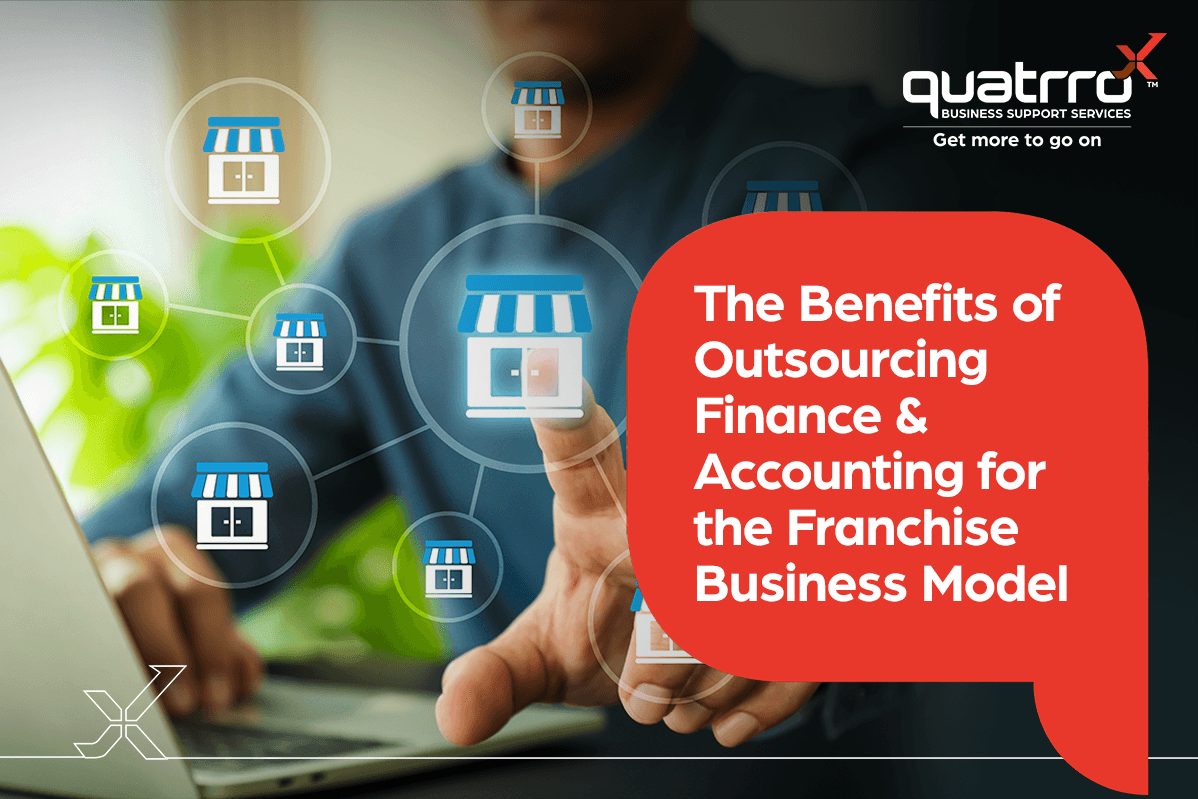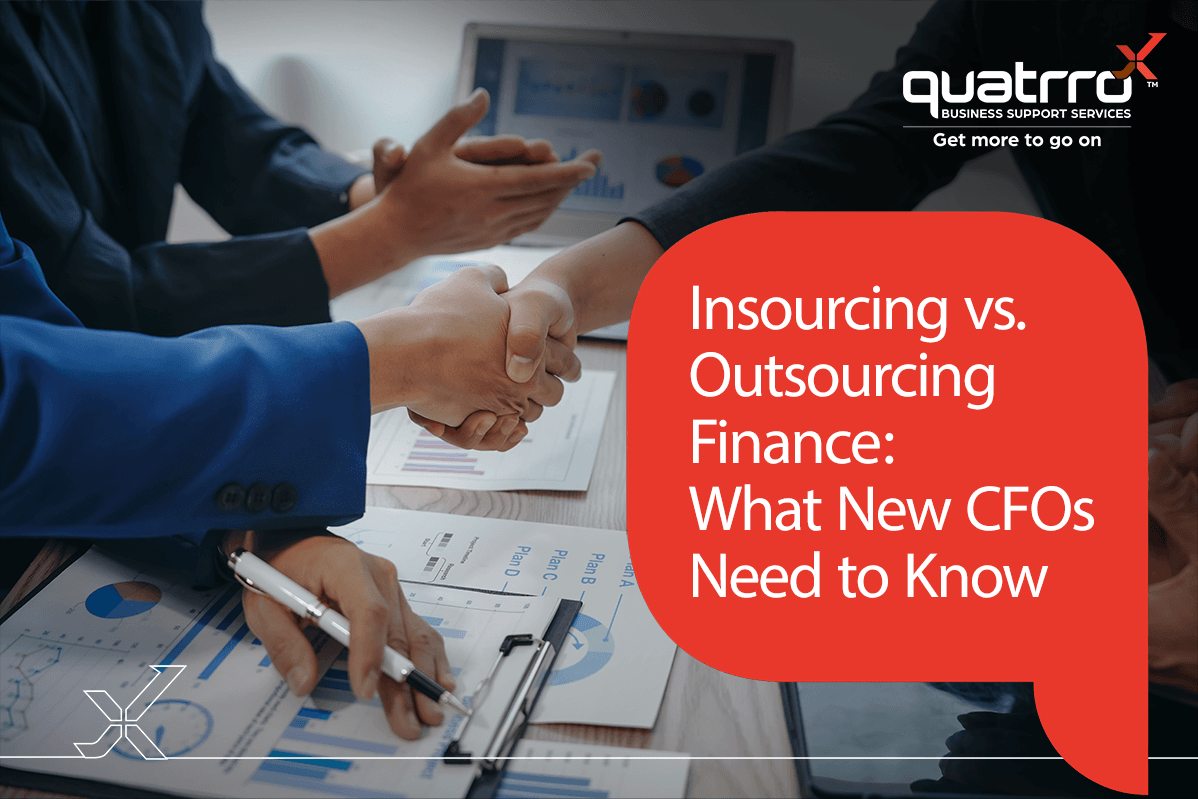Blog Details
2026: The Year Mid-Market Outpaces Enterprise in AI Adoption
February 17, 2026

The Mid-Market 2026 Playbook: This is Part 3 of our three-part series on transforming your mid-market business for 2026. Read Part 1: Data Maturity | Read Part 2: Finance Transformation
—
This represents an inversion of historical patterns. Conventional wisdom holds that emerging technologies flow from large enterprises with extensive capital and technical resources to mid-market organizations that adopt once technologies mature and costs decline. But AI deployment dynamics are proving materially different, and 2026 appears to mark the inflection point where mid-market velocity surpasses enterprise scale.
Cloud migration alone can represent a multi-year initiative for these companies requiring substantial capital, extensive change management, and coordination across disparate organizational units. Even organizations committed to modernization find themselves constrained by the technical debt accumulated over decades and the operational risk of disrupting systems that underpin critical business processes.
Mid-market organizations operate with materially different constraints. Many still rely on Excel-based processes and departmental applications rather than enterprise-scale systems. What appears to be a limitation actually represents strategic flexibility in this case – the ability to implement cloud-native solutions without the burden of complex migration programs or the sunk costs that create organizational resistance to platform changes.
The decision-making advantage compounds this structural benefit. Large enterprises typically require extended governance cycles for activities such as securing stakeholder alignment, completing architecture reviews, and navigating approval processes across multiple layers of management. Often, by the time deployment authorization is secured, market conditions and technology capabilities have often shifted materially.
Mid-market organizations have the agility to deploy pilot programs in weeks rather than quarters. Leadership teams are smaller, decision authority is more concentrated, and organizational change can be driven directly by executive leadership rather than cascading through middle management layers that may resist changes to established processes and organizational structures.
Organizations that adopted a year or two later benefited from more mature technology at lower cost, avoided vendors that failed to achieve product-market fit, and implemented proven use cases rather than experimenting with unproven applications. The fast-follower cohort achieved superior returns with lower risk and shorter implementation timelines.
The parallel to AI deployment is imperfect – AI represents greater technical complexity than RPA, with more demanding data requirements, domain-specific algorithmic tuning needs, and integration challenges. Enterprise back-office applications will likely require extended maturation periods before achieving reliable, scalable deployment.
However, certain AI applications are already demonstrating material impact. Customer service and IT support functions are achieving 20% to 30% cost reductions at scale, validated across multiple implementations. These represent immediate investment opportunities where technology maturity and business case clarity justify deployment.
For many mid-market organizations, particularly those with finance functions of approximately 50 people or more, the immediate ROI from back-office AI deployment remains uncertain. This creates a strategic opportunity to be fast followers – moving deliberately once use cases and vendor capabilities are validated, but not waiting for comprehensive market maturity that may not materialize for several years.
This type of practical deployment approach emphasizes integration with existing systems rather than wholesale replacement. AI-assisted demand forecasting embedded in existing ERP platforms, predictive analytics integrated into current CRM systems, and enhanced profitability analysis within established reporting tools all extend current capabilities without requiring comprehensive system replacement and the associated investment costs.
Vendor failure creates strategic threats beyond wasted capital. Organizations risk losing developed capabilities, implemented integrations, and institutional knowledge when vendors cease operations. This kind of risk demands rigorous vendor evaluation focused on survival probability and strategic alignment.
Evaluation criteria of and potential vendor should emphasize several factors. First, vendors focused on extending existing systems rather than replacing them demonstrate better product-market fit and create less implementation risk. Organizations benefit from enhanced capabilities within familiar platforms rather than complete technology replacement.
Second, demonstrated ROI with comparable organizations provides validation that technology claims translate to business results. Vendors should provide specific implementation examples with quantified outcomes, not merely describe potential applications or theoretical benefits.
Third, domain expertise matters materially. AI applications that work effectively in manufacturing may not translate to professional services or financial services contexts. Algorithms require industry-specific training and tuning to generate reliable results.
Finally, financial stability determines whether vendors can support customers across potential multi-year implementation and optimization cycles. Organizations should assess vendor funding, revenue growth, and capital efficiency to evaluate survival probability.
Most significantly, the traditional advantages of large enterprises – capital resources, technical expertise, and implementation capacity – are becoming less pivotal than mid-market advantages of decision velocity, organizational agility, and the ability to deploy focused solutions without navigating complex organizational structures.
Organizations that move deliberately in 2026, as fast followers implementing validated use cases with financially stable partners, will establish material advantages over competitors that either move too early into immature technology or wait for comprehensive market maturity that may not emerge for several years.
The risk is really about moving at the right time on AI adoption. On the one hand, there’s the risk is strategic inaction that cedes competitive position to more agile competitors, or on the other hand there’s premature deployment that wastes capital and organizational credibility on immature technology.
Organizations should begin now, with focused deployment in high-impact applications, realistic expectations for timelines and outcomes, and careful vendor selection that emphasizes stability and domain expertise over technological sophistication or market hype.
By 2027, the competitive landscape will reflect 2026 strategic decisions. Organizations that deployed AI thoughtfully will have established capabilities that compound over time. Organizations that delayed will find themselves increasingly disadvantaged in operational efficiency, customer retention, and strategic decision-making as AI becomes table stakes rather than competitive advantage at that point.
Evaluating AI opportunities for your organization? Schedule a strategic consultation to discuss how AI capabilities can address specific business challenges while managing implementation risk and capital deployment.
—
2026: The Year Mid-Market Outpaces Enterprise in AI Adoption
A fundamental shift is underway in enterprise technology adoption patterns. Mid-market organizations are increasingly positioned to deploy advanced AI capabilities ahead of large enterprises—not despite resource constraints, but because of structural advantages that eclipse capital availability in the current technology landscape.This represents an inversion of historical patterns. Conventional wisdom holds that emerging technologies flow from large enterprises with extensive capital and technical resources to mid-market organizations that adopt once technologies mature and costs decline. But AI deployment dynamics are proving materially different, and 2026 appears to mark the inflection point where mid-market velocity surpasses enterprise scale.
The Structural Advantage of Mid-Market Organizations
Large enterprises face a challenge that fundamentally constrains their AI deployment velocity: legacy infrastructure complexity. A typical Fortune 500 organization operates on-premise ERP systems deployed years ago, maintains data warehouses built over multiple generations of technology, and manages integrations across dozens of core systems.Cloud migration alone can represent a multi-year initiative for these companies requiring substantial capital, extensive change management, and coordination across disparate organizational units. Even organizations committed to modernization find themselves constrained by the technical debt accumulated over decades and the operational risk of disrupting systems that underpin critical business processes.
Mid-market organizations operate with materially different constraints. Many still rely on Excel-based processes and departmental applications rather than enterprise-scale systems. What appears to be a limitation actually represents strategic flexibility in this case – the ability to implement cloud-native solutions without the burden of complex migration programs or the sunk costs that create organizational resistance to platform changes.
The decision-making advantage compounds this structural benefit. Large enterprises typically require extended governance cycles for activities such as securing stakeholder alignment, completing architecture reviews, and navigating approval processes across multiple layers of management. Often, by the time deployment authorization is secured, market conditions and technology capabilities have often shifted materially.
Mid-market organizations have the agility to deploy pilot programs in weeks rather than quarters. Leadership teams are smaller, decision authority is more concentrated, and organizational change can be driven directly by executive leadership rather than cascading through middle management layers that may resist changes to established processes and organizational structures.
Lessons from Robotic Process Automation Deployment
The RPA market evolution provides instructive parallels in this sceanrio. RPA technologies began gaining enterprise traction in 2012, but meaningful return on investment (ROI) didn’t materialize broadly until 2017-2018. Early enterprise adopters invested substantial capital in immature technology, effectively subsidizing vendor product development while absorbing implementation risk and opportunity costs.Organizations that adopted a year or two later benefited from more mature technology at lower cost, avoided vendors that failed to achieve product-market fit, and implemented proven use cases rather than experimenting with unproven applications. The fast-follower cohort achieved superior returns with lower risk and shorter implementation timelines.
The parallel to AI deployment is imperfect – AI represents greater technical complexity than RPA, with more demanding data requirements, domain-specific algorithmic tuning needs, and integration challenges. Enterprise back-office applications will likely require extended maturation periods before achieving reliable, scalable deployment.
However, certain AI applications are already demonstrating material impact. Customer service and IT support functions are achieving 20% to 30% cost reductions at scale, validated across multiple implementations. These represent immediate investment opportunities where technology maturity and business case clarity justify deployment.
For many mid-market organizations, particularly those with finance functions of approximately 50 people or more, the immediate ROI from back-office AI deployment remains uncertain. This creates a strategic opportunity to be fast followers – moving deliberately once use cases and vendor capabilities are validated, but not waiting for comprehensive market maturity that may not materialize for several years.
Strategic Deployment Framework
Successful AI deployment in mid-market organizations requires focus on specific, high-impact applications rather than comprehensive transformation programs.- Pricing optimization represents immediate opportunity. AI-enabled analysis of customer behavior patterns, competitive dynamics, and market conditions can inform pricing strategies that directly impact revenue realization and margin expansion. This moves pricing from intuition-based to data-driven decision-making.
- Supply chain visibility and predictive analytics address critical operational challenges. AI capabilities can predict demand volatility, optimize inventory positioning, and identify potential supply chain disruptions with sufficient lead time to implement mitigation strategies. In today’s environment of persistent supply chain uncertainty, this represents both risk management and competitive advantage.
- Working capital optimization leverages AI to analyze payment patterns, forecast cash flow dynamics, and identify optimization opportunities across the cash conversion cycle. For organizations operating with constrained access to capital or facing elevated capital costs, working capital efficiency directly affects financial flexibility and growth capacity.
- Customer retention analytics deploy predictive models to identify customers exhibiting churn indicators, enabling proactive intervention before relationship deterioration reaches irreversible stages. Given that customer acquisition costs typically exceed retention costs by substantial margins, retention improvement drives material bottom line impact.
This type of practical deployment approach emphasizes integration with existing systems rather than wholesale replacement. AI-assisted demand forecasting embedded in existing ERP platforms, predictive analytics integrated into current CRM systems, and enhanced profitability analysis within established reporting tools all extend current capabilities without requiring comprehensive system replacement and the associated investment costs.
Vendor Selection in a Volatile Market
The current AI vendor landscape does present material risks that require careful assessment. Recent data indicates that 70% of venture capital investment flows to AI companies, with San Francisco alone seeing $35 billion deployed to AI startups in a single year. Industry analysis suggests that 90% of current AI vendors will not survive the next 24 months.Vendor failure creates strategic threats beyond wasted capital. Organizations risk losing developed capabilities, implemented integrations, and institutional knowledge when vendors cease operations. This kind of risk demands rigorous vendor evaluation focused on survival probability and strategic alignment.
Evaluation criteria of and potential vendor should emphasize several factors. First, vendors focused on extending existing systems rather than replacing them demonstrate better product-market fit and create less implementation risk. Organizations benefit from enhanced capabilities within familiar platforms rather than complete technology replacement.
Second, demonstrated ROI with comparable organizations provides validation that technology claims translate to business results. Vendors should provide specific implementation examples with quantified outcomes, not merely describe potential applications or theoretical benefits.
Third, domain expertise matters materially. AI applications that work effectively in manufacturing may not translate to professional services or financial services contexts. Algorithms require industry-specific training and tuning to generate reliable results.
Finally, financial stability determines whether vendors can support customers across potential multi-year implementation and optimization cycles. Organizations should assess vendor funding, revenue growth, and capital efficiency to evaluate survival probability.
Implementation Principles for 2026
Organizations approaching AI deployment should apply the following guiding principles.- Focus deployment on one or two high-impact applications initially rather than pursuing comprehensive transformation. Concentrated focus enables faster implementation, clearer ROI measurement, and organizational learning that informs subsequent deployment decisions.
- Leverage specialized partners for technical implementation while maintaining strategic control of business applications and data ownership. Partner expertise accelerates deployment and reduces risk, while internal focus on strategic application ensures AI capabilities align with business priorities.
- Prioritize integration with existing systems to minimize disruption and accelerate adoption. The goal is enhanced effectiveness of current processes, not comprehensive process redesign that creates organizational resistance and extends implementation timelines.
- Set realistic expectations for implementation timelines and return realization. Despite market hype, AI deployment requires sustained effort to achieve material results. RPA implementations required approximately two years to demonstrate clear ROI; AI complexity suggests comparable, or longer, timelines depending on application scope.
- Measure success through business outcomes rather than technology metrics. Customer retention improvement, pricing optimization impact, and supply chain disruption reduction represent meaningful success indicators. Algorithm sophistication or model accuracy are intermediate metrics, not business outcomes.
The Competitive Mandate
The convergence of several factors makes 2026 a critical year for mid-market AI strategy. Technology maturity is reaching deployment viability for specific applications. Vendor consolidation is beginning to clarify which solutions demonstrate sustainable business models. And, finally, implementation best practices are emerging from early deployments.Most significantly, the traditional advantages of large enterprises – capital resources, technical expertise, and implementation capacity – are becoming less pivotal than mid-market advantages of decision velocity, organizational agility, and the ability to deploy focused solutions without navigating complex organizational structures.
Organizations that move deliberately in 2026, as fast followers implementing validated use cases with financially stable partners, will establish material advantages over competitors that either move too early into immature technology or wait for comprehensive market maturity that may not emerge for several years.
The risk is really about moving at the right time on AI adoption. On the one hand, there’s the risk is strategic inaction that cedes competitive position to more agile competitors, or on the other hand there’s premature deployment that wastes capital and organizational credibility on immature technology.
Organizations should begin now, with focused deployment in high-impact applications, realistic expectations for timelines and outcomes, and careful vendor selection that emphasizes stability and domain expertise over technological sophistication or market hype.
By 2027, the competitive landscape will reflect 2026 strategic decisions. Organizations that deployed AI thoughtfully will have established capabilities that compound over time. Organizations that delayed will find themselves increasingly disadvantaged in operational efficiency, customer retention, and strategic decision-making as AI becomes table stakes rather than competitive advantage at that point.
Evaluating AI opportunities for your organization? Schedule a strategic consultation to discuss how AI capabilities can address specific business challenges while managing implementation risk and capital deployment.
Latest Insights
Related Blogs
Contact Us








